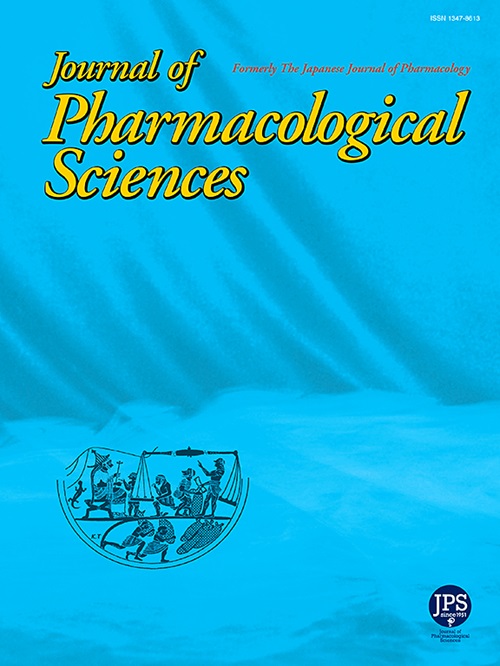Additive effects of mirabegron on muscarinic receptor binding and on relaxation of cholinergic detrusor muscle contraction by antimuscarinics
IF 2.9
3区 医学
Q2 PHARMACOLOGY & PHARMACY
引用次数: 0
Abstract
Mirabegron is the first selective β3-adrenoceptor agonist, to be developed as an alternative to antimuscarinic therapy for patients with overactive bladder (OAB). This agent exerts off-target effects on muscarinic receptors. Its combination with solifenacin results in a higher incidence of anticholinergic effects, such as dry mouth, than solifenacin alone. The present study investigated whether the combination of mirabegron and antimuscarinics exerted additive effects on muscarinic receptors and cholinergic contraction in rat tissues. Muscarinic receptor binding activity and inhibitory effect on carbachol-induced contraction in rat tissues were evaluated by radioreceptor assays using [N-methyl-3H]scopolamine chloride (3HNMS) and the organ-bath procedure, respectively. The muscarinic receptor binding activities of solifenacin and imidafenacin in the rat brain increased when administered in combination with mirabegron. Moreover, the inhibitory effects of solifenacin and imidafenacin on carbachol-induced contractions in rat isolated bladder strips were increased by mirabegron, particularly at lower concentrations of solifenacin and imidafenacin. This is the first study to suggest that mirabegron in combination with antimuscarinics exerts additive effects for muscarinic receptor binding and inhibitory effects on cholinergic contractions in bladder strips. The results obtained also showed that these additive effects may contribute to enhanced therapeutic effects on OAB, but also cholinergic adverse effects.
mirabegron对毒蕈碱受体结合和抗毒蕈碱剂对胆碱能逼尿肌收缩松弛的加性作用
Mirabegron是第一种选择性β3-肾上腺素能受体激动剂,作为抗uscarinic治疗膀胱过度活动症(OAB)的替代药物。这种药物对毒蕈碱受体产生脱靶效应。与索非那新联合使用会导致比单独使用索非那新更高的抗胆碱能作用发生率,如口干。本研究探讨美拉比龙与抗毒蕈素联用是否对毒蕈素受体和大鼠组织胆碱能收缩产生加性作用。采用[n-甲基- 3h]氯化东莨菪碱(3HNMS)和器官浴法分别测定毒毒碱受体结合活性和对大鼠组织中碳甾醇诱导的收缩的抑制作用。索利那新和咪他那新在大鼠脑内的毒蕈碱受体结合活性与mirabegron联合使用时增加。此外,索拉非那新和咪他那新对碳巴酚诱导的大鼠离体膀胱条收缩的抑制作用在米瑞比龙的作用下增强,尤其是在低浓度的索拉非那新和咪他那新下。本研究首次提示mirabegron联合抗毒蕈碱类药物对毒蕈碱受体结合具有加性作用,并对膀胱条胆碱能收缩具有抑制作用。结果还表明,这些加性效应可能有助于增强OAB的治疗效果,但也有胆碱能不良反应。
本文章由计算机程序翻译,如有差异,请以英文原文为准。
求助全文
约1分钟内获得全文
求助全文
来源期刊
CiteScore
6.20
自引率
2.90%
发文量
104
审稿时长
31 days
期刊介绍:
Journal of Pharmacological Sciences (JPS) is an international open access journal intended for the advancement of pharmacological sciences in the world. The Journal welcomes submissions in all fields of experimental and clinical pharmacology, including neuroscience, and biochemical, cellular, and molecular pharmacology for publication as Reviews, Full Papers or Short Communications. Short Communications are short research article intended to provide novel and exciting pharmacological findings. Manuscripts concerning descriptive case reports, pharmacokinetic and pharmacodynamic studies without pharmacological mechanism and dose-response determinations are not acceptable and will be rejected without peer review. The ethnopharmacological studies are also out of the scope of this journal. Furthermore, JPS does not publish work on the actions of biological extracts unknown chemical composition.

 求助内容:
求助内容: 应助结果提醒方式:
应助结果提醒方式:


